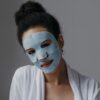Self-care, sometimes called self-love, is a routine that improves mental and physical health. This includes emotional and social wellbeing wellbeing as well as a healthy diet.
The key is finding activities that make you happy or relaxed. Those can be big or small, like taking a walk outside, having a bubble bath, and seeing your therapist.
Take a Bath or Shower
There are plenty of ways to practice self-care. It’s about caring for your physical health, mental wellbeing wellbeing, and emotional needs. It’s also about identifying your coping strategies to see whether they are healthy or unhealthy and adopting healthier ones in their place.
One of the most basic self-care practices involves bathing or showering daily. Many people take a bath, but showering is just as beneficial. “What is most important in terms of hygiene is that you wash your body regularly with soap to keep yourself clean,” says Niket Sonpal, MD, a New York-based internist and germ expert.
A warm bath can help relax your muscles and relieve aches or pains. In addition, it can help reduce stress hormones and balance your mood. A bath can help prevent dry skin and keep you fresh all day. Lastly, it’s the perfect time to soak up the benefits of essential oils. You can check on some oils or other bath and body care products using Adam & Eve coupons. Then, add a few drops of your favorite scent to a relaxing bath. The aromatherapy will add to your sense of calm, and the soothing effect of the water will make you feel even better.
Massage Your Body
You might not think getting a massage has anything to do with self-care, but it’s a great way to pamper yourself. It’s one of the best ways to relieve muscle pain because it increases the blood supply traveling around your body. Plus, it reduces the levels of a neurotransmitter called substance P that causes you to feel pain, says therapist Melissa Field.
Another reason to get a full-body massage is because it can help you sleep better. According to a study published in the journal Sleep, regular massages can increase the depth and quality of your sleep. The study also found that people who received massage therapy regularly reported less chronic insomnia and other sleep issues.
In terms of what to include in your self-care routine, it’s all up to you. “Self-care can be anything that feels nourishing to you,” Amsellem says. For example, consider daily chores like making your bed in the morning self-care because it gives you a sense of accomplishment and helps set the tone for your day.
Exercise
The trend toward self-care has grown from a niche to an integral part of modern life. It is a component of health care, wellness initiatives, and even some business strategies for employee development.
Whether it is getting enough sleep, exercising regularly, eating healthy, or focusing on emotional well-being, there are many ways to practice self-care. However, it is essential to remember that self-care is not about indulgence or being selfish. It is about intentionally practicing behaviors that will promote health and happiness in the long term.
A person’s lifestyle will dictate what types of self-care are most important to them. For example, a busy college student who needs to be physically stimulated all day might prioritize physical self-care, while a retiree might focus on social and emotional self-care.
A self-care plan can effectively identify healthy and unhealthy coping strategies and potential barriers or obstacles that might prevent a person from engaging in positive self-care pursuits. To create a self-care plan, people should consider each of the following areas:
Eat Healthy
Taking care of one’s body involves eating healthy food and drinking plenty of water. This includes making healthy choices when dining out and cooking at home, minimizing sugar intake, limiting caffeine and alcohol, and avoiding junk foods.
In addition to physical self-care, people must eat well to maintain mental health. Emotional self-care focuses on learning to identify and regulate emotions as they arise. It includes practicing compassion, acceptance, and coping skills to help people navigate challenging emotions.
Socialization is another aspect of self-care that is important for everyone’s well-being. Healthy relationships with family and friends are critical for mental and emotional health and happiness. Everyone has different social needs, but making time for the most important people in your life is essential. This may involve putting off tasks that aren’t urgent and spending more time with those who matter most to you. Getting enough face-to-face time with your friends may include attending a lunch date or a community event.
Sleep
A good night’s sleep is essential because it is linked to everything from mood to memory, learning, and performance. All the stress relief activities in the world will do no good if you aren’t getting adequate rest, so ensure you sleep every night.
Exercising regularly, eating healthy, and staying hydrated is also essential. In addition, it’s necessary to nurture your spirit through daily activities such as meditation or journaling. Finally, building and maintaining meaningful relationships with loved ones through in-person gatherings or virtual meetings is essential.
Self-care is a personal journey that will look different for everyone, but the most important thing is to start small and find a routine that works best for you. By reflecting on the past year, setting realistic goals, and incorporating intentional practices into your life, you can establish a new, healthier foundation for yourself in the New Year.
Related Post:







